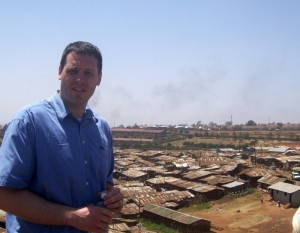An on-campus panel discussion on November 9 will tackle the contentious issue of microfinance and how it may help alleviate poverty in Africa.
Overseen by Camosun sociology professor Francis Adu-Fibiri, the panel will discuss the pros and cons of the lending practice known as microfinance, the impact it can have on poor communities, and especially the change it can bring in the lives of women.

Adu-Fibiri defines microfinance as “a small kind of loan with a low interest rate to help poor people, especially women, in both the third world and developing countries.”
While this may sound like the idealist’s dream come true, microfinance can prove to be problematic for the recipients.
“If women get this kind of finance and they are unable to get regular income to pay it back they’ll have to borrow somewhere else,” explains Adu-Fibiri. “Because of that, I’ve been a bit sceptical about microfinance.”
This scepticism is warranted. There are examples of microfinance lenders that hinder, rather than help, their communities.
Josh Ault, professor of international business at UVic, has seen the positive and negative effects that microfinance can have in developing countries.
“There are lenders out there that call themselves microfinance and a lot of them have been accused of creating negative outcomes,” says Ault. “I spent the summer in Hyderabad, India. About a year ago the industry there got into trouble. There was actually a string of suicides among borrowers.”
But Ault has also seen microfinance be a positive force in the lives of the poor.
“Most of the organizations that I visited in Eastern Africa have followed [the original microfinance] model very closely and you can see it; it’s palpable. You can see that their incomes, their capabilities, and opportunities are higher than the general population,” says Ault.
This dichotomy will be a main focus for the upcoming panel discussion. Adu-Fibiri, co-chair of Camosun’s Africa Awareness Committee, hopes to come away with some solutions he and the committee can put into action.
“If this system can facilitate women’s empowerment, then it will help them get out of poverty and through that, their children will get out of poverty and the community will get out of poverty,” says Adu-Fibiri.
And despite the negatives, Ault agrees that “when microfinance is done right, it is an incredibly powerful tool for poverty alleviation.”
Go to faculty.camosun.ca/africa for more details on the free panel discussion.
